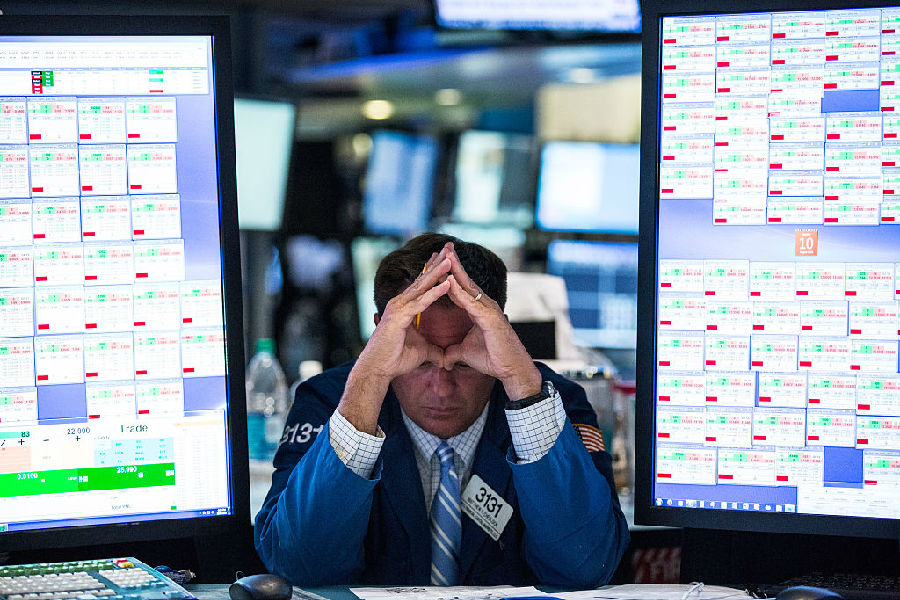(单词翻译:单击)
Sellside analysts may be a dying breed. The Financial Times reported last week that the number of investment bank analysts providing economic forecasts, and stock and bond recommendations, has fallen by a tenth since 2012. There were only about 6,000 analysts working in these jobs at the world’s 12 largest investment banks in 2016, down from 6,600 four years previously.
卖方分析师这种职业或许正走向末路。英国《金融时报》上周报道,提供经济预测、推荐股票和债券的投行分析师人数自2012年以来减少了十分之一。2016年,世界上12家最大投行只有大约6000名分析师从事这些工作,而4年前有6600名。
Tighter regulation and falling profits have certainly had an impact, though the numbers suggest that reports of the death of sellside analysis have been greatly exaggerated. Yet even if the numbers do continue to decline, there would be little cause for mourning.
监管收紧和利润下滑肯定产生了影响,尽管这些数字似乎表明,有关卖方分析已死的报告严重夸大其词。然而,就算分析师人数真的持续减少,人们也没有什么理由哀悼。
For a start, most analysts’ research is not very good. In 1973 Princeton University professor Burton Malkiel claimed in his book, A Random Walk Down Wall Street, that: “A blindfolded monkey throwing darts at a newspaper’s financial pages could select a portfolio that would do just as well as one carefully selected by experts.” Many of those pages have disappeared, but research suggesting random selection would be as accurate as analysts’ predictions continues to proliferate. In 2013, for example, Nerdwallet, a personal finance website, found that 49 per cent of analysts’ ratings on the top 30 US stocks during the year were incorrect.
首先,大多数分析师的研究并不是很有水平。早在1973年,普林斯顿大学(Princeton University)教授伯顿?马尔基尔(Burton Malkiel)在他的著作《漫步华尔街》(A Random Walk Down Wall Street)中写道:“一只蒙上眼睛朝着报纸金融版面扔飞镖的猴子选中的投资组合,可能和专家们精心选择的投资组合表现一样好。”很多这样的金融版面已经消失,但是仍不断有研究显示,随机选择和分析师的预测准确率一样高。比如,2013年个人理财网站Nerdwallet发现,那一年分析师评价最高的30只美国股票有49%预测错误。
There are many reasons analysts get it wrong. Like other people, they tend to believe that the past is a guide to the future. In 2004 an influential academic paper found that analysts from sellside firms generally recommended “glamour” stocks, that is those with positive momentum, high growth and high volume. Unsurprisingly, these also tended to be the most expensive stocks.
分析师出错的原因很多。就像其他人一样,他们倾向于相信过去指引着未来。2004年一份有影响力的学术论文发现,卖方公司的分析师一般会推荐“魅力”股,也就是那些势头积极、增长高和交易量高的股票。并不令人意外的是,这些股票往往也是最昂贵的。

Analysts do not like to break away from the herd. Being an outlier and wrong is much more painful than being close to what everyone else is predicting and wrong. This discourages originality of thought and means convergence to the consensus is the norm. Nowhere is this more apparent than in the inaccuracy of analysts’ recommendations of whether to buy, hold or sell a stock.
分析师们不喜欢脱离大部队。脱离众人却被证明错误,要比紧跟其他每个人的预测却被证明错误痛苦得多。这阻碍了思维原创性,并且意味着向共识靠拢是常态。没有什么比分析师对是否购买、持有和卖出一只股票的建议不准确更能明显体现这一点了。
Numerous studies have found that analysts routinely overhype the companies they cover, and that “buy” recommendations outnumber “sell” recommendations, even when the market is heading for a meltdown. An analysis in 2015 by Bespoke Investment Group of S&P 500 stock ratings found that, of the 12,122 ratings, just 6.67 per cent carried a sell label. The temptations to be bullish are clear. Access to company management gets more difficult with a sell recommendation, and the relationship is often of primary importance to an analyst’s employer, the bank. And, as a former analyst wrote in the FT, “fund managers do not want to talk to analysts about their hold recommendations”.
许多研究发现,分析师们常常过度炒作自己覆盖的企业,而且“买入”建议的数量超过“卖出”,甚至当市场正滑向崩盘时也是如此。Bespoke Investment Group在2015年对标普500(S&P 500)股票评级的分析发现,在12122份评级中,只有6.67%带有“卖出”标签。看涨的诱惑很明显。如果建议卖出,接触公司管理层会变得更加困难,而这种关系对分析师的雇主——银行——往往是极其重要的。而且,就如一位前分析师在英国《金融时报》所写的,“基金经理不想与分析师讨论后者的‘持有’建议”。
The remark gets to the heart of the problem, which is the unhealthy relationship between the “sellside” and the so-called “buyside”, the fund managers whom the analysts serve.
这句话触及问题的核心,也就是“卖方”和所谓的“买方”,也就是分析师所服务的基金经理之间的畸形关系。
Jack Grubman, while a telecoms analyst at Citigroup’s Salomon Smith Barney unit, once claimed in an email that he raised a rating to suit the bank’s chief executive, who he hoped would help get his children into an exclusive kindergarten. (Sandy Weill denied wrongdoing and said the facts had been distorted.) Most examples are less egregious. But they still suggest that the interaction between equity and bond analysts and fund managers continues to encourage unhealthy cosiness.
时任花旗集团(Citigroup)旗下所罗门美邦(Salomon Smith Barney)电信业分析师的杰克?格鲁曼(Jack Grubman)曾在一封邮件中声称,他曾提高一项评级以迎合花旗首席执行官,希望后者可以帮他的孩子进入一所贵族幼儿园。(桑迪?威尔(Sandy Weill)否认存在不当行为,并称相关事实遭到扭曲。)大多数例子没有这么恶劣。但这些例子仍似乎表明,股票和债券分析师与基金经理之间的互动依然在助长不健康的密切关系。
When I was a fund manager in the City and on Wall Street in the 1990s and early 2000s, it surprised me how much reliance was placed on analysts to do the hard graft of sifting through the accounts and delivering the in-depth knowledge of a company to which we then committed money. I felt then — and still do — that fund managers should do their own number-crunching before investing.
我上世纪90年代和2000年代初在伦敦金融城(City)和华尔街任基金经理时,惊讶于基金经理极度依赖分析师来完成梳理企业账目和提供有关这家企业的深度知识的艰苦工作,基金经理据此作出投资决定。我当时觉得——现在也依然觉得——基金经理应该在投资前亲自搞明白数字。
More distorting was the prevalence of “soft” commission, whereby research was provided to fund managers in return for brokerage business, a profoundly untransparent mechanism behind which a lot of mutual back-scratching took place — rarely in the interest of the ultimate investor.
更扭曲的是“软性”佣金的盛行,也就是通过为基金经理提供研究来换取经纪业务,这种极为不透明的机制背后存在大量相互照顾的行为——而这些行为很少是出于最终投资者的利益。
Much has changed since then. For one, the rules on soft commissions have been tightened up considerably. However, stricter regulation has not resulted in analysts getting it right more often. Academics in Texas and Kansas examined the patterns in analyst forecasts made from October 1993 to September 2013, and found that analyst forecast error “significantly increased over the long-term post-regulation period”.
自那以来情况已经发生了很大的变化。至少来说,针对软性佣金的法规已被大大收紧。然而,更严格的监管并没有提高分析师预测的准确率。德克萨斯州和堪萨斯州的学者查看了1993年10月到2013年9月期间分析师预测的规律,发现分析师预测错误的情况“在监管出台后长期而言显著增加”。
If greater transparency has not forced analysts to do a better job, other mechanisms must be tried. Alternatively, the demise of sellside research should be quietly celebrated.
如果提升透明度没能迫使分析师把工作做得更好,就必须尝试其他机制。或者,人们应该暗自庆幸卖方研究的消亡。


